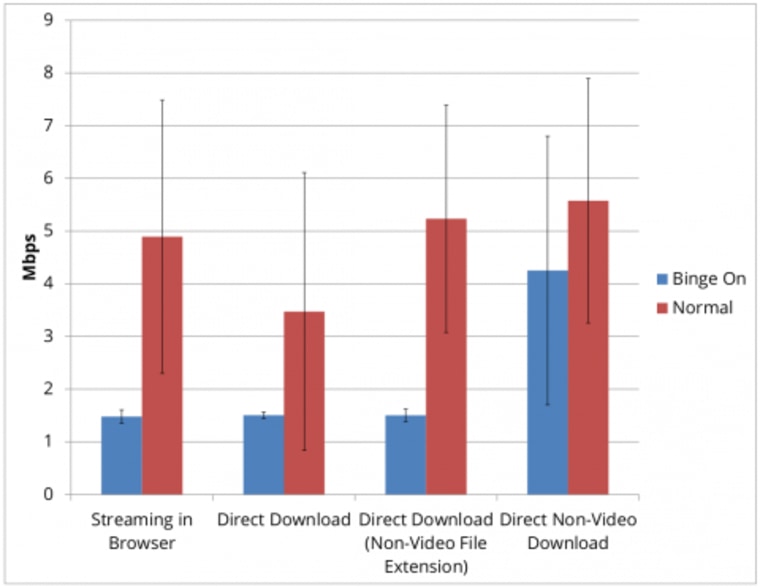T-Mobile's "Binge On" service allows people to stream as much video as they want on their phones, albeit at a lower-than-usual resolution. But research by the Electronic Frontier Foundation says that it amounts to nothing more than throttling, or limiting the bandwidth available to certain kinds of mobile traffic — a practice troubling to internet freedom advocates because it lets the company pick and choose what data to prioritize.
"Our results show that T-Mobile is throttling video streams, plain and simple," reads the EFF's blog post. "Many of T-Mobile’s customers don’t realize that Binge On has this unfortunate side effect ― especially since T-Mobile has buried the fact that Binge On throttles all video in their fine print."

Related: Not Everyone Thinks T-Mobile's 'Binge On' Streaming Is a Good Idea
T-Mobile did not immediately respond to a request for comment from NBC News.
According to EFF, testing showed that every video stream, not just on partnered providers, was reduced to 480p, a resolution considerably lower than most phones can show, and one that uses less bandwidth than the phones are capable of downloading. And if an HD stream doesn't offer a lower-resolution option, the video will load slowly and stutter, the study found.
Even videos that don't identify themselves using the usual HTTP signals get throttled, which the EFF said it confirmed with T-Mobile to mean that the carrier is inspecting traffic very closely indeed to make sure all video is detected.
This isn't the first time Binge On has been accused of breaking rules: It has been suggested that only counting some traffic goes against net neutrality rules, and providers like YouTube have voiced concern that their services are being interfered with.
The Binge On service is not mandatory and customers can opt out, but the EFF suggests that even so, it's something the FCC should look into:
"Our research suggests this is a significant consumer harm that runs afoul of well-established open internet principles. The FCC can and should step in and hold T-Mobile accountable."
